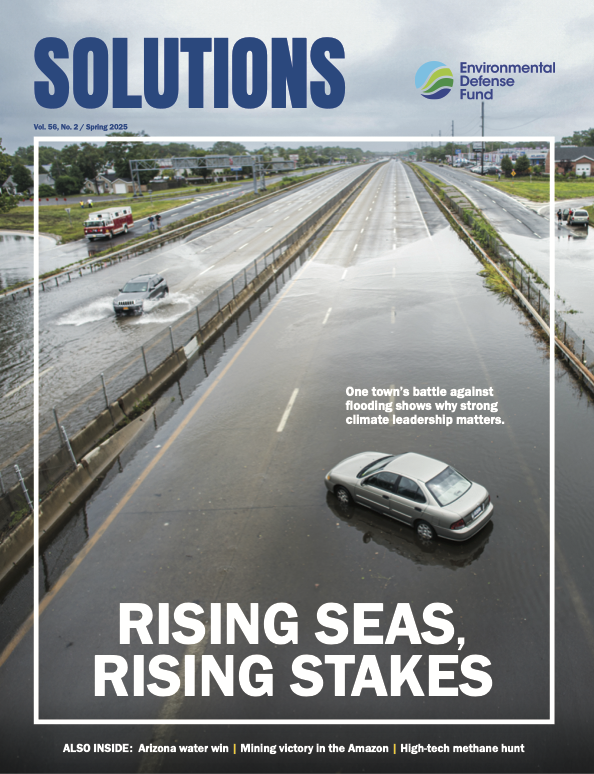Solutions newsletter
EDF's quarterly publication, for our members
Archives
-
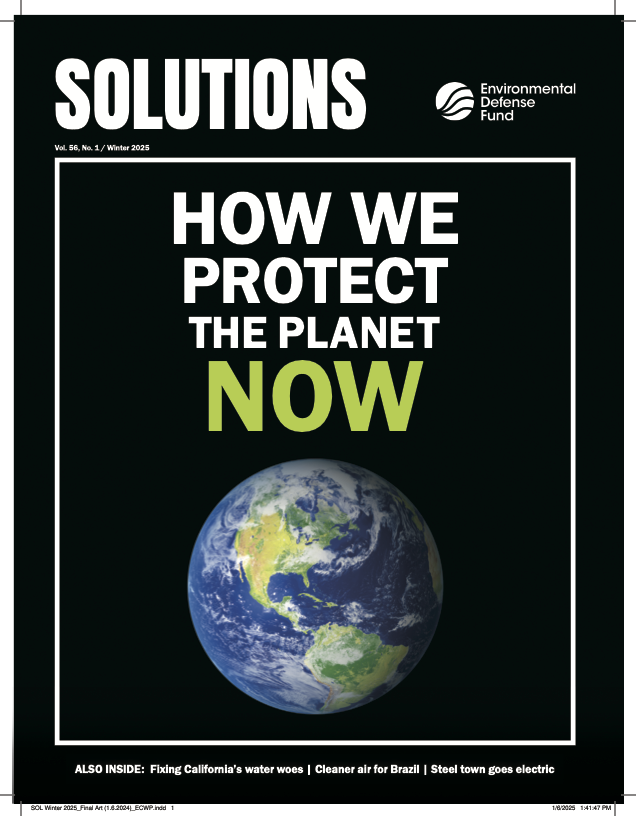
-
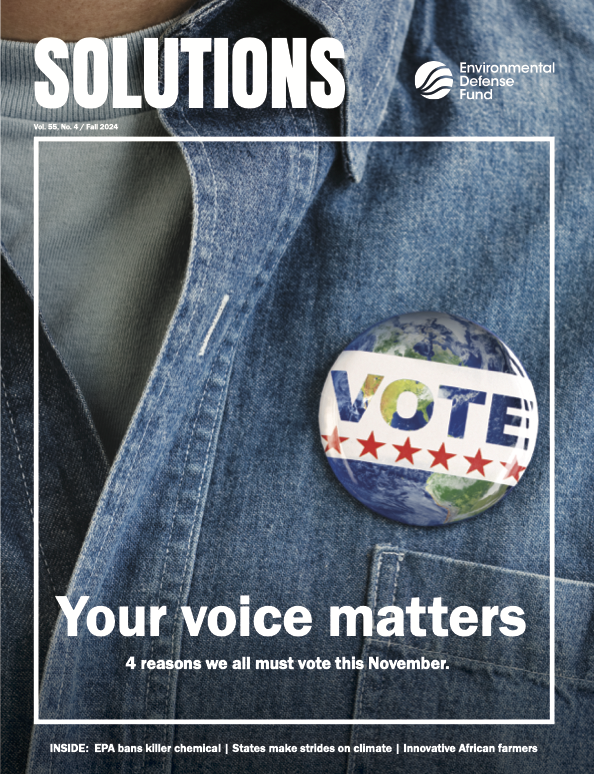
Fall 2024
Climate action delivers: Landmark investments across the U.S. [PDF] »
4 reasons we all must vote this November.
-
-

Spring 2024
The new frontier [PDF] »
With the successful launch of MethaneSAT, EDF is fighting climate change from space.
-
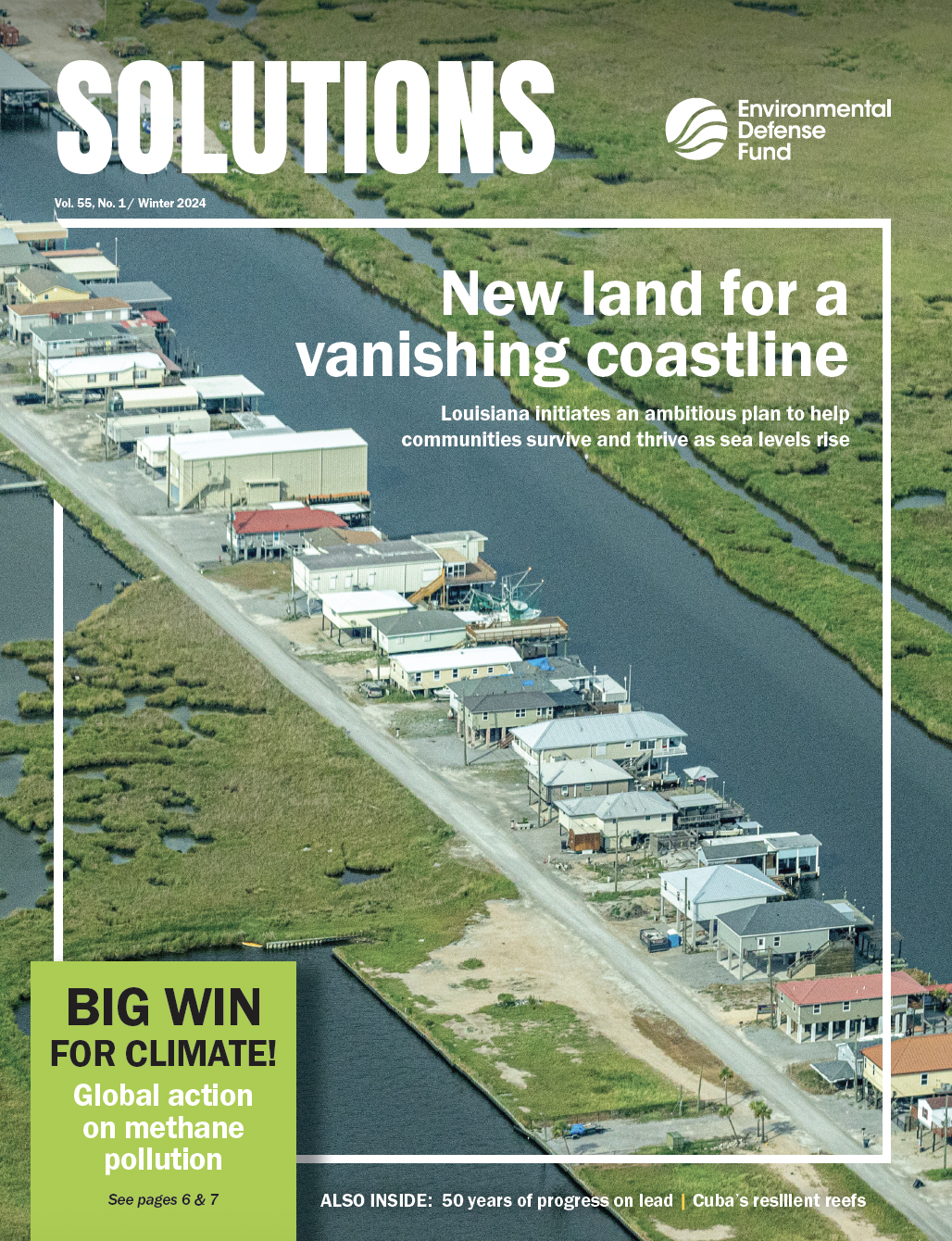
Winter 2024
New land for a vanishing coastline [PDF] »
Louisiana initiates an ambitious plan to help communities survive and thrive as sea levels rise.
-

Fall 2023
Your package has arrived [PDF]»
The world’s dependence on maritime shipping weighs heavily on the environment. Can the industry clean up in time?
-
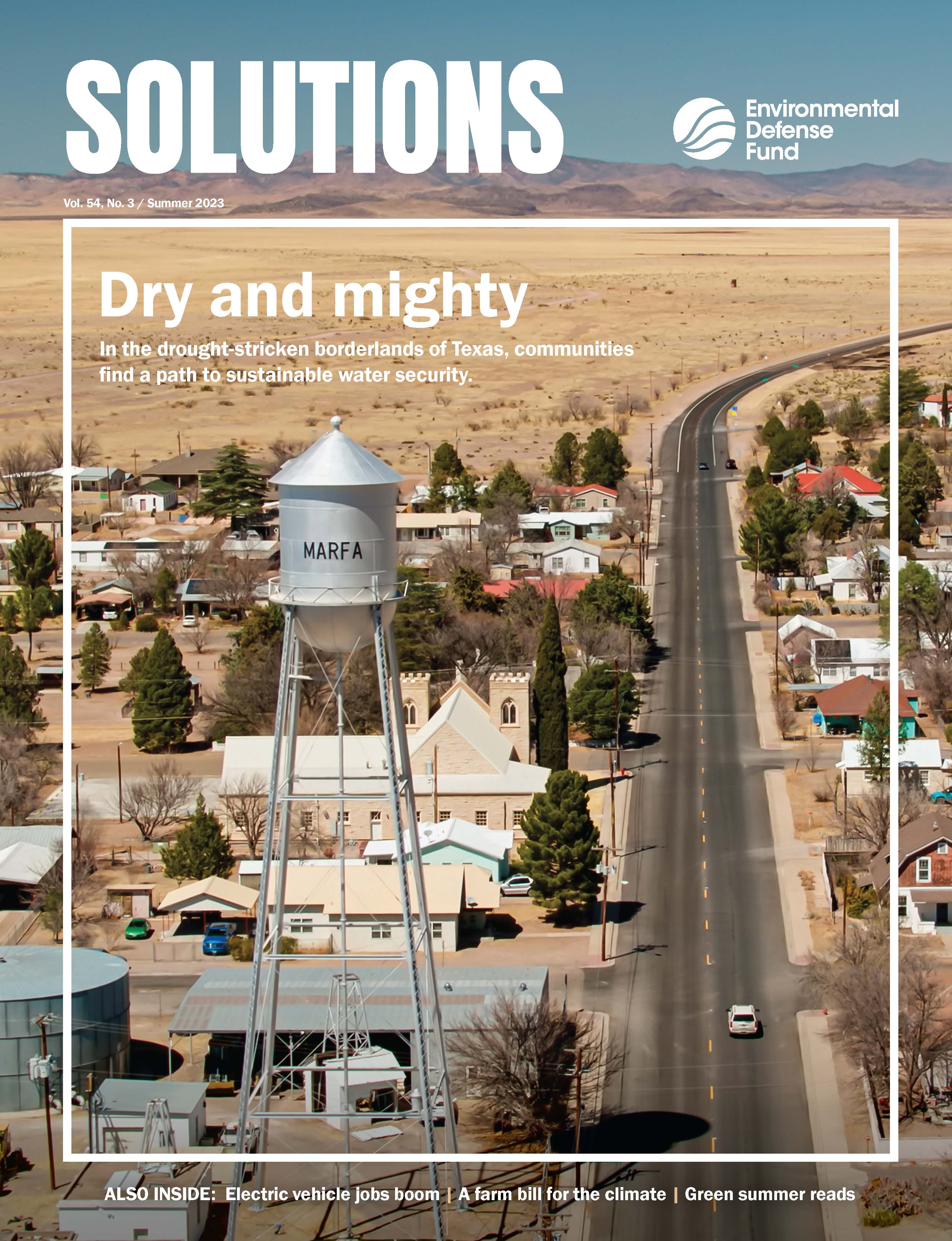
Summer 2023
Dry and mighty [PDF] »
In the drought-stricken borderlands of Texas, communities find a path to sustainable water security.
-
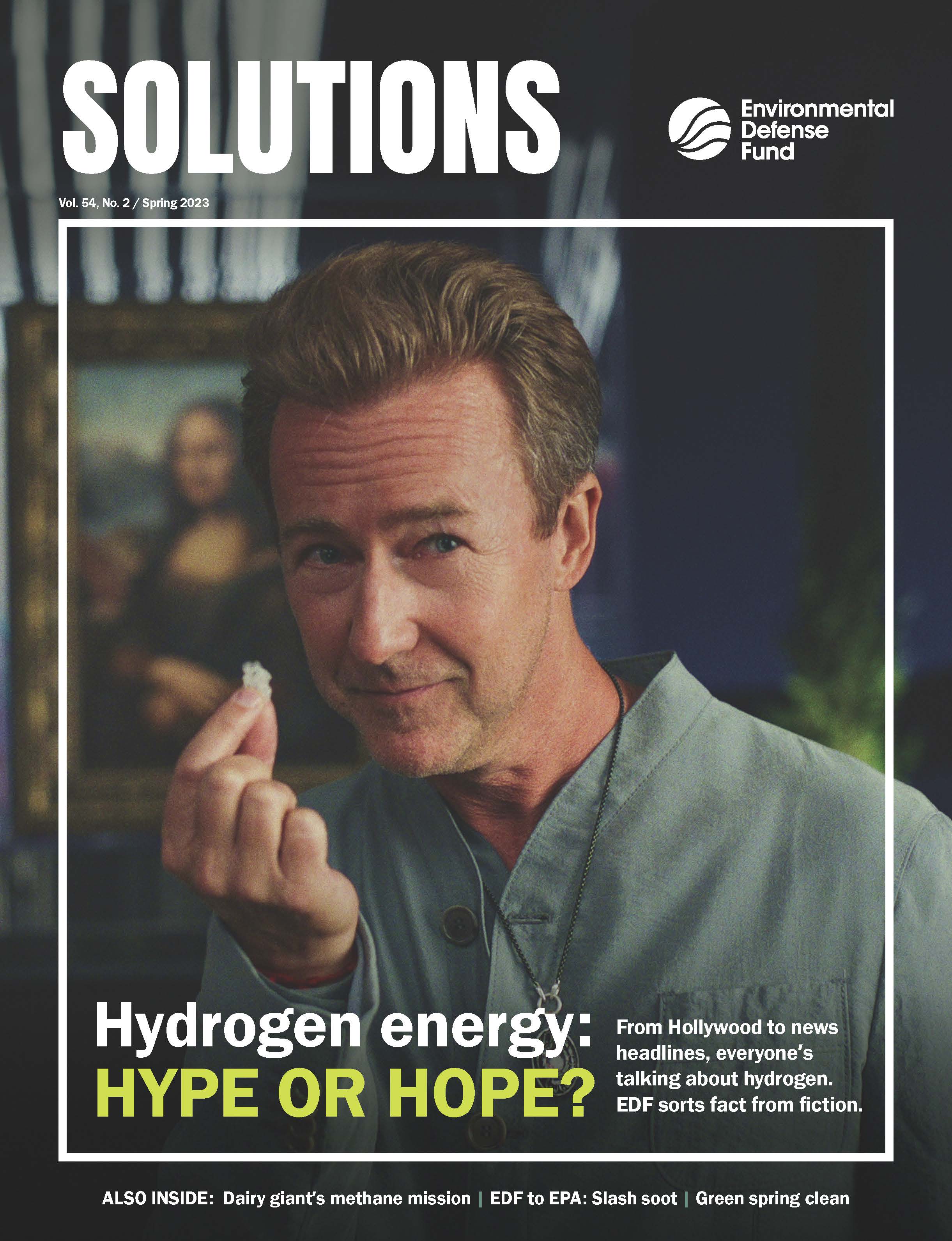
Spring 2023
Hydrogen energy: Hype or hope? [PDF] »
From Hollywood to news headlines, everyone’s talking about hydrogen. EDF sorts fact from fiction.
-

Winter 2023
This is our home [PDF] »
Meet the Indigenous leaders fighting to preserve Ecuador’s rainforest and stabilize the climate.
-

Fall 2022
Water, water everywhere [PDF] »
Climate change promises a stormier future. Ten years after Sandy, New York and New Jersey are still seeking innovative ways to live with water
-

Summer 2022
Keeping the lights on [PDF] »
Hurricanes, floods and fires. From California to Puerto Rico, the race is on to build a cleaner, more resilient power grid.
-
Spring 2022
Feeding a hungry world [PDF] »
Our oceans face increasing threats. EDF is helping fishers fight climate change and preserve vital food supplies for billions.
-
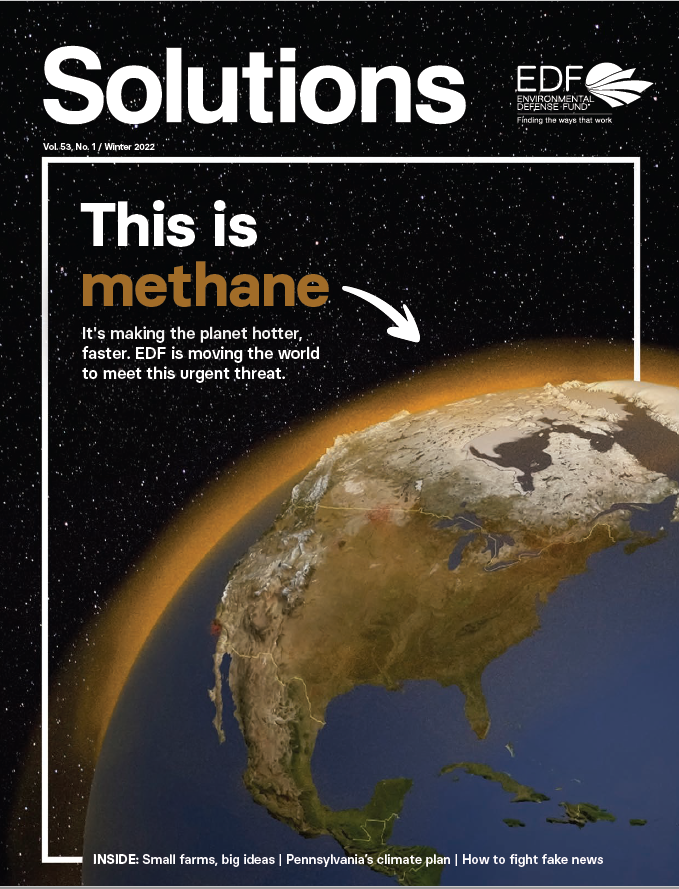
Winter 2022
This is Methane [PDF] »
It's making the planet hotter, faster. EDF is moving the world to meet this urgent threat.
-

-

Summer 2021
Generation Climate [PDF] »
They’re young, passionate and breaking new ground in the climate fight.
-

Spring 2021
America's electric revolution [PDF] »
A clean, modern electric grid, millions of electric vehicles — and millions of jobs to build them. EDF is racing to make this future a reality.
-
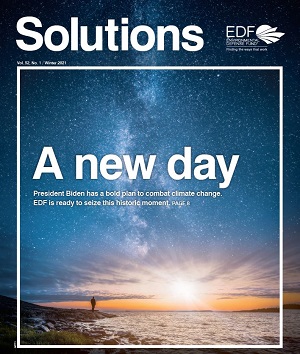
Winter 2021
A new day [PDF] »
President Biden has a bold plan to combat climate change. EDF is ready to seize this historic moment.
-
Fall 2020
The pathfinders [PDF] »
From farmers to fishermen and from local officials to community leaders, everyday heroes are bringing bold environmental ideas to life. EDF salutes them.
-
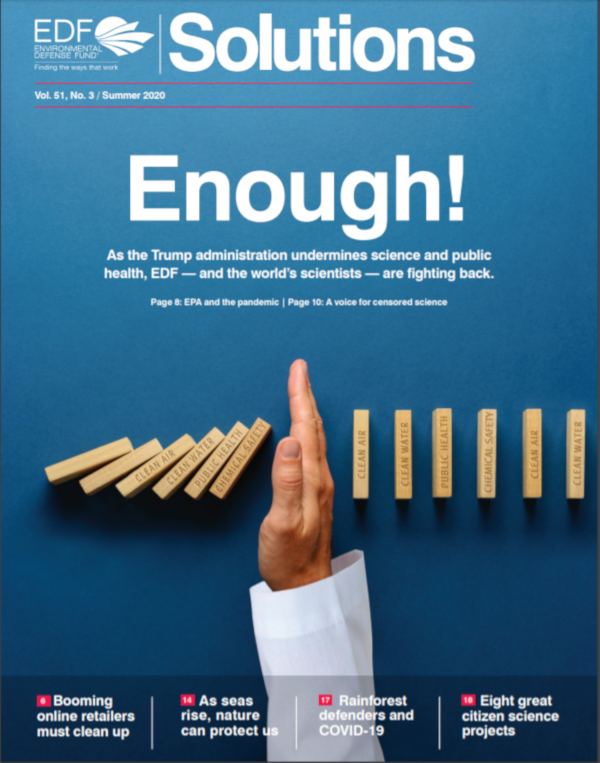
Summer 2020
Enough! [PDF] »
As the Trump administration undermines science and public health, EDF — and the world's scientists — are fighting back.
-

Spring 2020
Revealed! [PDF] »
Methane pollution from America’s largest oilfield is heating the planet. EDF is finding the leaks and holding companies accountable.
-

Winter 2020
Catching up! [PDF] »
EDF drives progress on electric trucks, zero-emission cars and cleaner air travel.
-
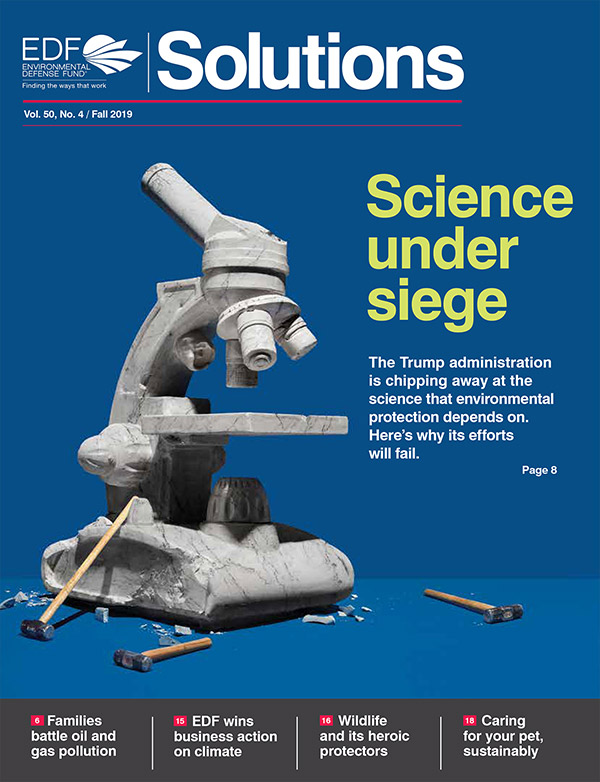
Fall 2019
Science under siege [PDF] »
The Trump administration is chipping away at the science that environmental protection depends on. Here's why its efforts will fail.
-

Summer 2019
Feeling the heat [PDF] »
Climate change is turning wildfires into megafires. EDF is confronting the crisis, helping make forests healthier and communities more resilient.
-
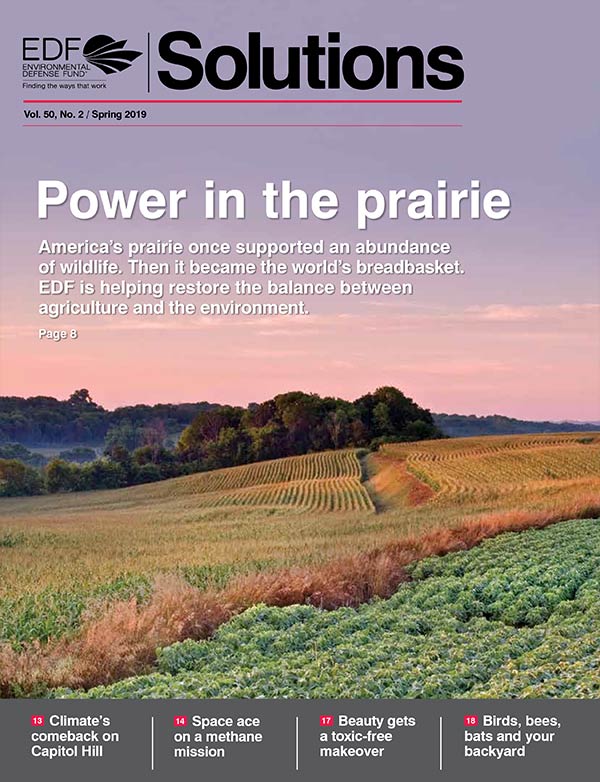
Spring 2019
Power in the prairie [PDF] »
America's prairie once supported an abundance of wildlife. Then it became the world's breadbasket. EDF is helping restore the balance between agriculture and the environment
-
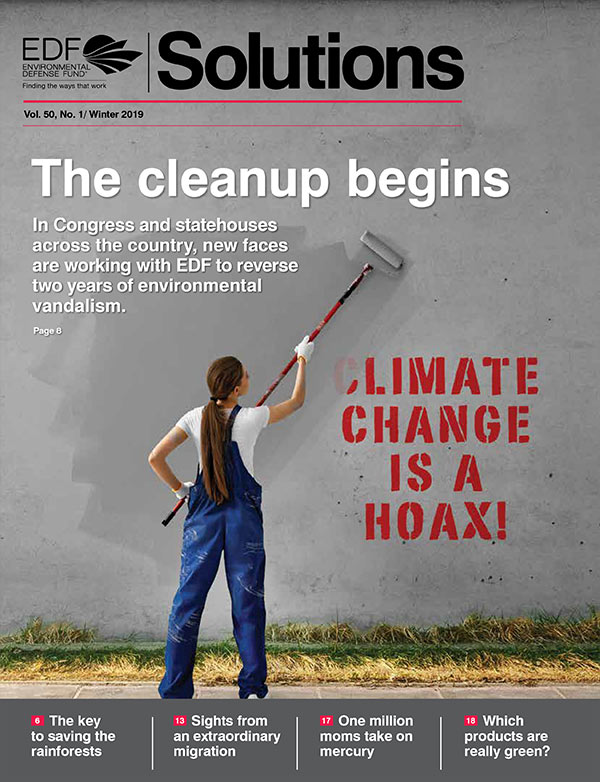
Winter 2019
The cleanup begins [PDF] »
In Congress and statehouses across the country, new faces are working with EDF to reverse two years of environmental vandalism.
-

Fall 2018
The new defenders [PDF] »
As Washington caves on climate change and public health, states are rushing to fill the void.
-

Summer 2018
Meet the Fourth Wave [PDF] »
A new era of environmental innovation gives us powerful new ways to protect nature.
-
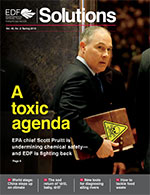
Spring 2018
A toxic agenda [PDF] »
EPA chief Scott Pruitt is undermining chemical safety — and EDF is fighting back.
-
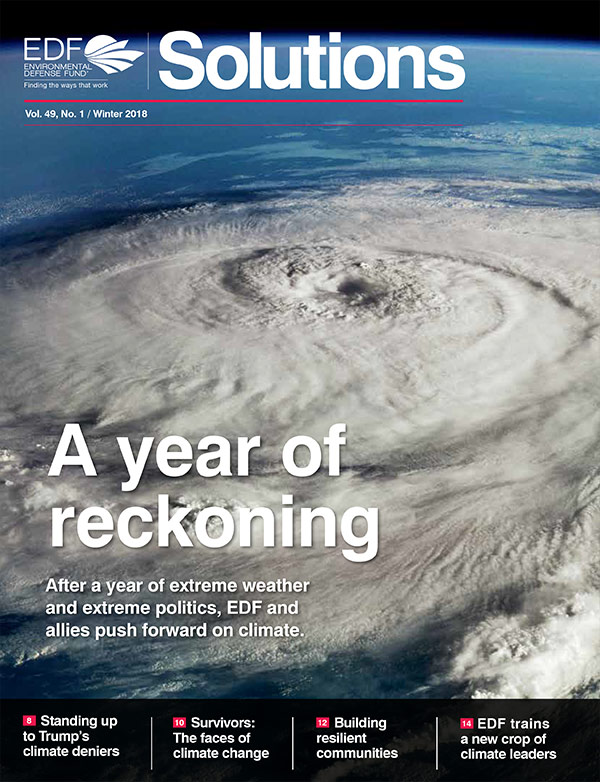
Winter 2018
A year of reckoning [PDF] »
After a year of extreme weather and extreme politics, EDF and allies push forward on climate.
-
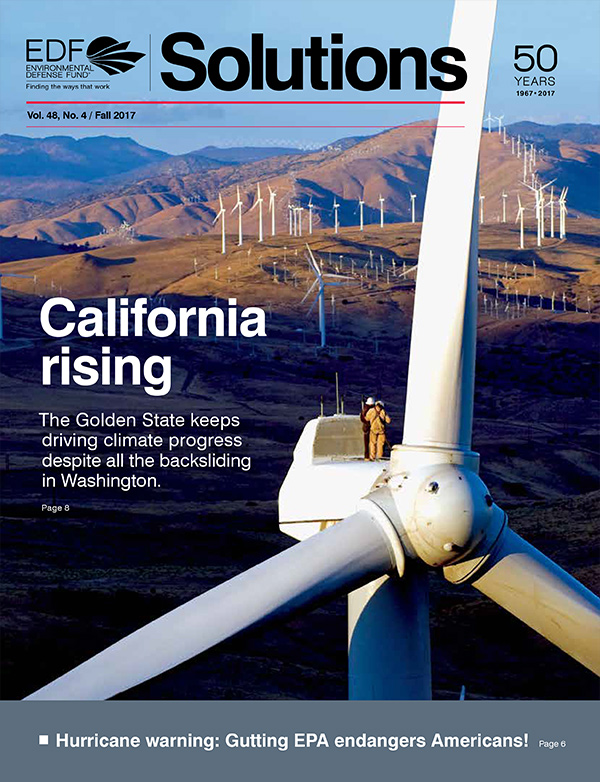
Fall 2017
California rising [PDF] »
The Golden State keeps driving climate progress despite all the backsliding in Washington.
-

Summer 2017
Everyday Heroes [PDF] »
Standing strong for conservation, these EDF partners rarely make headlines, but their environmental leadership is vital.
-

-

Winter 2017
Saving the monarch [PDF] »
EDF is working with farmers to rescue the beleaguered butterfly.
-
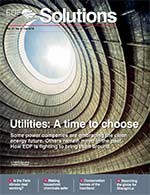
Fall 2016
Utilities: A time to choose [PDF] »
Some power companies are embracing the clean energy future. Others remain mired in the past. How EDF is fighting to bring them around.
-
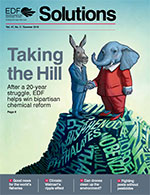
Summer 2016
Taking the Hill [PDF] »
After a 20-year struggle, EDF helps win bipartisan chemical reform
-

Spring 2016
Exposing a Climate Threat [PDF] »
In California, EDF's infrared images revealed the biggest known methane leak in U.S. history. How do we stop the next one?
-

Winter 2016
Power Switch [PDF] »
EDF is helping put the clean energy revolution within everyone's grasp.
-

Fall 2015
Next stop, Paris [PDF] »
Strong new commitments by the U.S. and China raise hopes for progress.
-
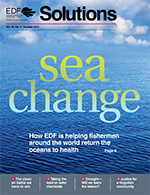
Summer 2015
Sea Change [PDF] »
How EDF is helping fishermen around the world return the oceans to health.
-

Spring 2015
The China Paradox [PDF] »
China burns as much coal as the rest of the world combined. It is also the world's largest investor in clean energy. See how EDF is helping it go green.
-
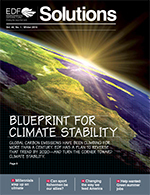
Winter 2015
Blueprint for climate stability [PDF] »
Global carbon emissions have been climbing for more than a century. EDF has a plan to reverse that trend by 2020 — and turn the corner toward climate stability.
-
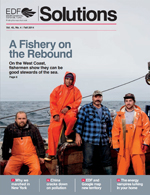
Fall 2014
A Fishery on the Rebound [PDF] »
On the West Coast, fishermen show they can be good stewards of the sea.
-

Summer 2014
Green power comes home [PDF] »
Cheap green electricity is no longer a pipe dream. How you can slash your utility bill and short-circuit climate change.
-

Spring 2014
Guardians of the Amazon [PDF] »
At home in the forest, Brazil's Kayapo are key actors in the fight against global climate change.
-

Winter 2014
The Fix-it Brigade [PDF] »
What young climate activists are teaching Apple, Caterpillar and other Fortune 500 companies.
-

Fall 2013
Colorado comes clean [PDF] »
The state has transformed into a testing ground for a low-carbon future.
-

-

Spring 2013
Forest defender [PDF] »
Today's environmental challenges are different from those of the 20th century. So are the people solving them.
-

Winter 2013
The new normal? [PDF] »
A season of extreme weather triggers a national debate on climate resilience—and action.
-

Fall 2012
Delta rising [PDF] »
Launching the most ambitious environmental restoration project in the nation's history.
-

Summer 2012
Protecting the great predators [PDF] »
Sharks are among the oldest surviving animals on Earth. Can we save them?
-

Spring 2012
The clean air wars [PDF] »
EDF's tenacious legal team holds the line against the Clean Air Act's biggest opponents.
-
-1.jpg)
Winter 2012
Wise investments [PDF] »
Snowfall in California's High Sierra supplies much of the state's fresh water. What is the true value of such a resource?
-

-

Summer 2011
We can do it [PDF] »
Moms unite to take on polluters and politicians — and anyone else who threatens their kids.
-

Spring 2011
Congress to kids: Breathe less! [PDF] »
Defying science and the Supreme Court, the U.S. House is waging a reckless war on America's clean air protections. But at what cost to our children?
-

Winter 2011
Truce in the Delta [PDF] »
In California, water makes deserts bloom and cities grow. Can it now save the environment?
-

Fall 2010
A perilous recovery [PDF] »
As the Gulf struggles to its feet, the region unites to save an ecosystem vital to people and nature.
-

Spring 2010
A greener Walmart [PDF] »
In search of a more sustainable future, the retail giant focuses on China.
-

-












